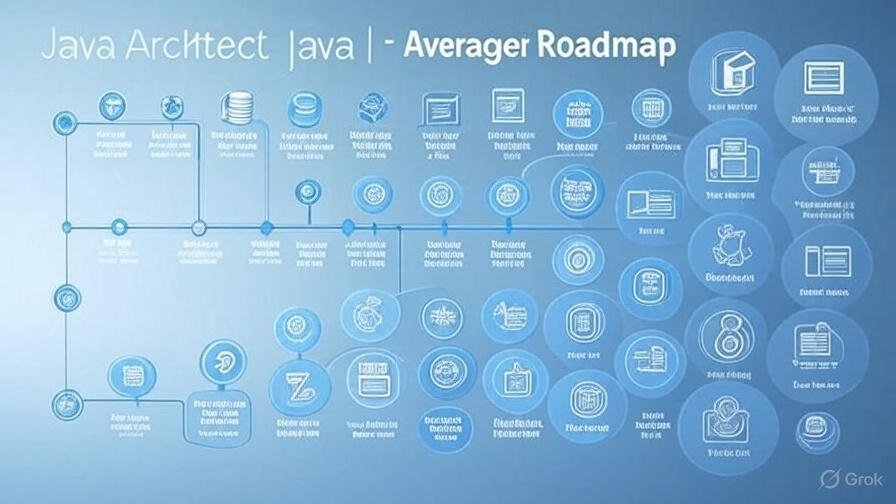
Essential Skills for a Modern Java Architect in 2025
Must-Have Skills for a Modern Java Architect in 2025
In the rapidly evolving tech landscape, the role of a Java architect has become more critical than ever. As we step into 2025, the demand for skilled Java architects continues to soar, making it essential for professionals to stay updated with the latest trends and technologies. This article explores the must-have skills for a modern Java architect in 2025, providing insights into the competencies that will set you apart in this dynamic field. For those looking to enhance their expertise, consider enrolling in a comprehensive java architect training program to stay ahead of the curve.
Technical Proficiency
Mastery of Java and Its Ecosystem
A modern Java architect must have an in-depth understanding of Java and its ecosystem. This includes proficiency in Java 21, the latest version, and familiarity with its new features and improvements. Knowledge of Java frameworks such as Spring, Hibernate, and Jakarta EE is crucial. Additionally, understanding the intricacies of the Java Virtual Machine (JVM) and performance tuning is essential for optimizing applications.
Cloud Computing and Microservices
Cloud computing has revolutionized the way applications are deployed and managed. A Java architect must be well-versed in cloud platforms like AWS, Azure, and Google Cloud. Proficiency in containerization technologies such as Docker and Kubernetes is also vital. Moreover, expertise in designing and implementing microservices architecture is a key skill, as it enables the development of scalable and resilient applications.
DevOps and CI/CD
DevOps practices have become integral to modern software development. A Java architect should be familiar with DevOps tools and methodologies, including continuous integration and continuous deployment (CI/CD) pipelines. Tools like Jenkins, GitLab CI, and GitHub Actions are essential for automating the build, test, and deployment processes. Understanding infrastructure as code (IaC) using tools like Terraform and Ansible is also beneficial.
Soft Skills
Leadership and Communication
Effective leadership and communication skills are crucial for a Java architect. As a leader, you will be responsible for guiding development teams, making architectural decisions, and ensuring project success. Strong communication skills are essential for collaborating with stakeholders, presenting architectural visions, and documenting technical specifications.
Problem-Solving and Critical Thinking
A Java architect must possess excellent problem-solving and critical thinking skills. The ability to analyze complex problems, identify root causes, and propose effective solutions is vital. This involves staying updated with the latest industry trends, evaluating new technologies, and making informed decisions that align with business goals.
Adaptability and Continuous Learning
The tech industry is constantly evolving, and a Java architect must be adaptable and committed to continuous learning. This includes staying updated with the latest advancements in Java and related technologies, attending industry conferences, and participating in professional development programs. Embracing a growth mindset and being open to new ideas and approaches is essential for long-term success.
Architectural Design and Best Practices
System Design and Scalability
A modern Java architect must excel in system design and scalability. This involves designing robust, scalable, and maintainable systems that can handle high traffic and data volumes. Knowledge of design patterns, architectural styles, and best practices is crucial. Additionally, understanding the principles of domain-driven design (DDD) and event-driven architecture (EDA) can enhance your ability to design effective solutions.
Security and Compliance
Security is a top priority in modern software development. A Java architect must be well-versed in security best practices and compliance standards. This includes understanding secure coding practices, implementing authentication and authorization mechanisms, and ensuring data privacy and protection. Familiarity with security frameworks and tools, such as Spring Security and OWASP, is essential.
Performance Optimization
Performance optimization is a critical aspect of a Java architect’s role. This involves identifying performance bottlenecks, optimizing code, and tuning the JVM for better performance. Proficiency in performance monitoring and profiling tools, such as JProfiler and VisualVM, is beneficial. Additionally, understanding caching strategies and techniques can significantly improve application performance.
Emerging Technologies
Artificial Intelligence and Machine Learning
Artificial Intelligence (AI) and Machine Learning (ML) are transforming the tech industry. A modern Java architect should have a basic understanding of AI and ML concepts and their applications. Familiarity with ML libraries and frameworks, such as TensorFlow and PyTorch, can be advantageous. Additionally, understanding how to integrate AI and ML models into Java applications can enhance your architectural capabilities.
Blockchain and Distributed Ledger Technology
Blockchain and Distributed Ledger Technology (DLT) are gaining traction in various industries. A Java architect should have a basic understanding of blockchain concepts, such as decentralization, consensus mechanisms, and smart contracts. Familiarity with blockchain platforms, such as Ethereum and Hyperledger, can be beneficial. Additionally, understanding how to integrate blockchain technology into Java applications can open up new architectural possibilities.
Internet of Things (IoT)
The Internet of Things (IoT) is revolutionizing the way devices and systems interact. A modern Java architect should have a basic understanding of IoT concepts and their applications. Familiarity with IoT platforms, such as AWS IoT and Azure IoT, can be advantageous. Additionally, understanding how to design and implement IoT solutions using Java can enhance your architectural capabilities.
Understanding Java Architect Roles and Responsibilities
As we delve deeper into the must-have skills for a modern Java architect in 2025, it’s crucial to understand the roles and responsibilities that come with this position. A Java architect is not just a technical expert but also a strategic leader who bridges the gap between business objectives and technical execution. They are responsible for designing and overseeing the implementation of complex software systems, ensuring they meet the organization’s needs and standards. This involves a deep understanding of software architecture principles, system design, and the ability to make informed decisions that align with business goals. By mastering these skills, a Java architect can effectively guide development teams, optimize system performance, and drive innovation within the organization.
Conclusion
In conclusion, the role of a modern Java architect in 2025 is multifaceted and demanding. It requires a combination of technical proficiency, soft skills, and a commitment to continuous learning. By mastering the must-have skills for a modern Java architect, you can position yourself as a valuable asset in the tech industry and drive innovation within your organization. Embrace the challenges and opportunities that come with this dynamic field, and strive for excellence in all your architectural endeavors.
FAQs
What is the role of a Java architect?
A Java architect is responsible for designing and overseeing the implementation of complex software systems using Java and related technologies. They guide development teams, make architectural decisions, and ensure project success.
What are the essential technical skills for a Java architect?
Essential technical skills for a Java architect include mastery of Java and its ecosystem, proficiency in cloud computing and microservices, knowledge of DevOps and CI/CD practices, and expertise in system design and scalability.
Why are soft skills important for a Java architect?
Soft skills are crucial for a Java architect because they enable effective leadership, communication, problem-solving, and adaptability. These skills are essential for collaborating with stakeholders, guiding development teams, and making informed decisions.
What is the importance of security in Java architecture?
Security is a top priority in modern software development. A Java architect must be well-versed in security best practices and compliance standards to ensure data privacy and protection, implement secure coding practices, and safeguard applications from potential threats.
How can a Java architect stay updated with emerging technologies?
A Java architect can stay updated with emerging technologies by attending industry conferences, participating in professional development programs, and embracing a growth mindset. Continuous learning and adaptability are key to staying ahead in the rapidly evolving tech landscape.
What is the significance of performance optimization in Java architecture?
Performance optimization is critical for ensuring that Java applications run efficiently and effectively. A Java architect must identify performance bottlenecks, optimize code, and tune the JVM for better performance to enhance application speed and responsiveness.
How can AI and ML enhance Java architecture?
AI and ML can enhance Java architecture by enabling the integration of intelligent models and algorithms into applications. This can improve decision-making, automate processes, and provide valuable insights, ultimately enhancing the overall functionality and performance of Java applications.
What is the role of blockchain in Java architecture?
Blockchain can play a significant role in Java architecture by enabling the development of decentralized and secure applications. A Java architect can leverage blockchain technology to design and implement solutions that ensure data integrity, transparency, and trust.
How can a Java architect integrate IoT into applications?
A Java architect can integrate IoT into applications by designing and implementing solutions that enable devices and systems to interact seamlessly. This involves understanding IoT platforms, protocols, and technologies, and leveraging them to create innovative and connected applications.
What are the benefits of continuous learning for a Java architect?
Continuous learning enables a Java architect to stay updated with the latest advancements in Java and related technologies, embrace new ideas and approaches, and enhance their skills and knowledge. This commitment to lifelong learning is essential for long-term success and growth in the tech industry.








